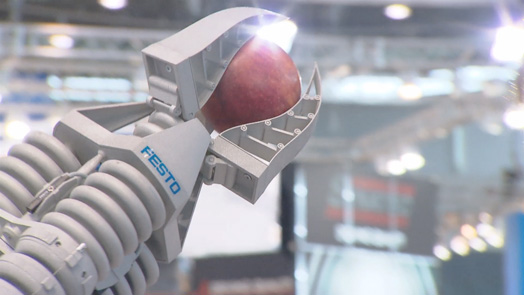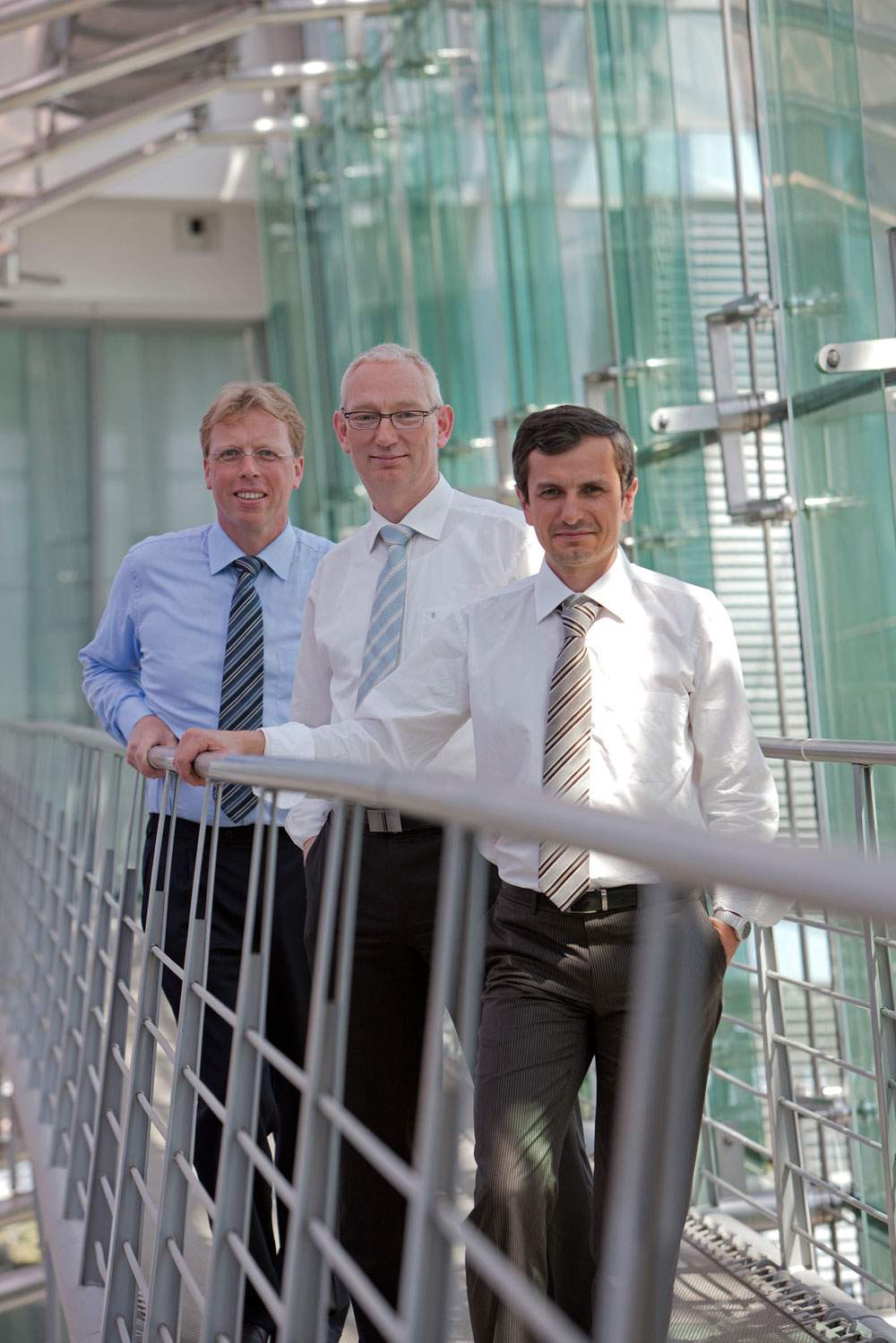Starting with the principle of an elephant's trunk, Festo and the Fraunhofer IPA collaborated to construct the Bionic Handling Assistant using additive production technologies. Drawing on the fundamentals of bionics, the researchers transferred natural construction principles to a robotic system, creating a unique handling system that achieves humanoid lightness of touch, dexterity, and flexibility.
The Bionic Handling Assistant consists of an artificial arm, a wrist, and a gripper with three fingers. The innovation lies in the device's enormous flexibility. With its flexible movement sequences, this precision gripping device can respond to contact with humans, first decreasing pressure and then reapplying it straight away. The exceptional flexibility and sensitivity of its gripper enables the biomechatronic assistant to handle raw eggs, tomatoes or a glass of water just as carefully as it does a human being. A sophisticated pneumatic system drives the movements if its artificial limbs. The Bionic Handling Assistant can be used in all areas in which people are reliant on the support of machines. These include not only medical technology, rehabilitation, and care of the disabled, but also agriculture and private households.
The Fraunhofer IPA contributed two solutions to the Assistant: the R&D know-how required to deploy a bellow as an actuator, and the technology of additive production. The exceptional versatility of the novel arm is largely attributable to its extremely lightweight design, which the Fraunhofer researchers achieved with a 3D printing process. Step by step, thin layers of pliable plastic are applied over one another and melted with a laser. Festo used this method to construct the entire handling system, including the gripper and all moving parts.

